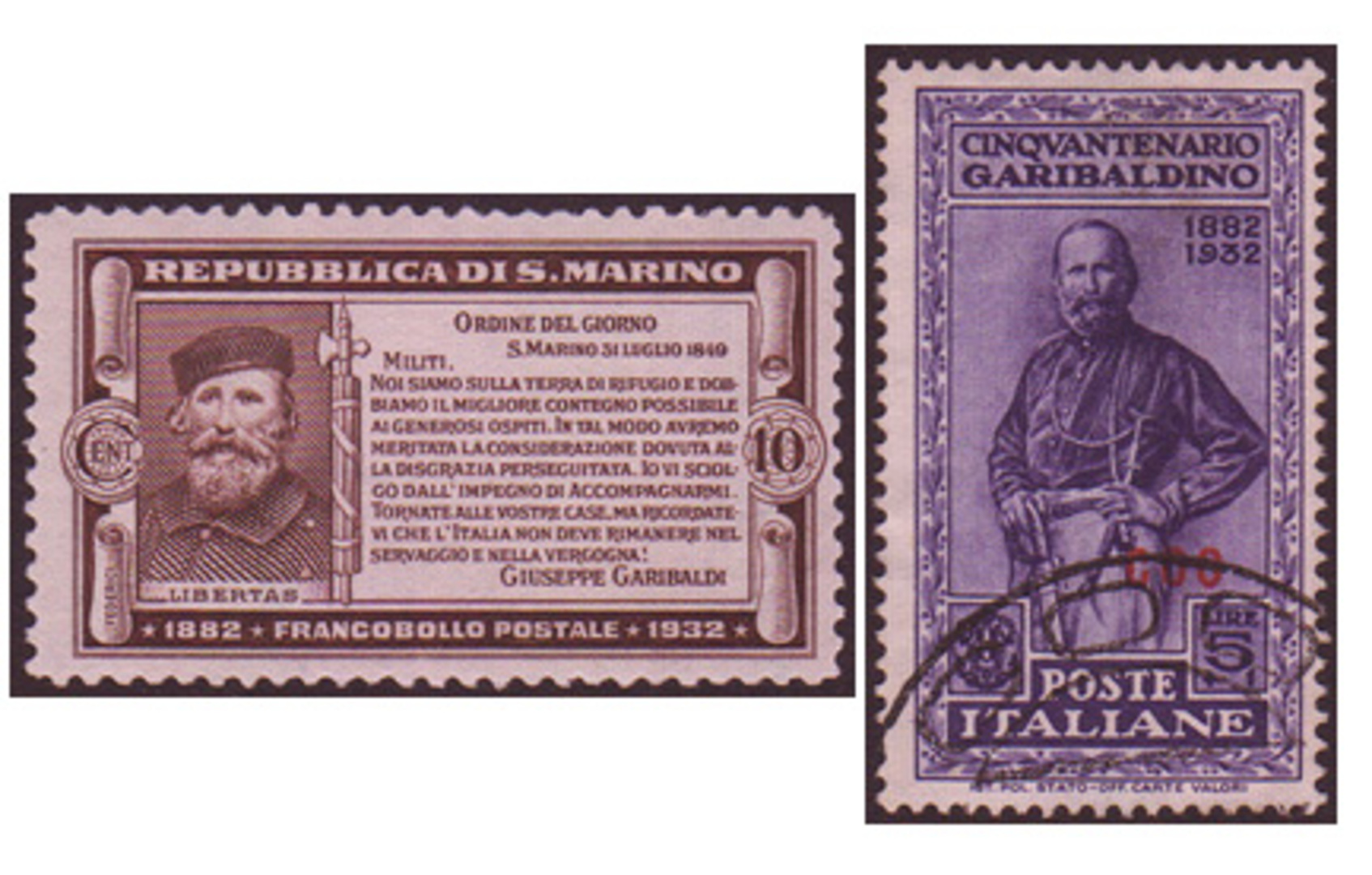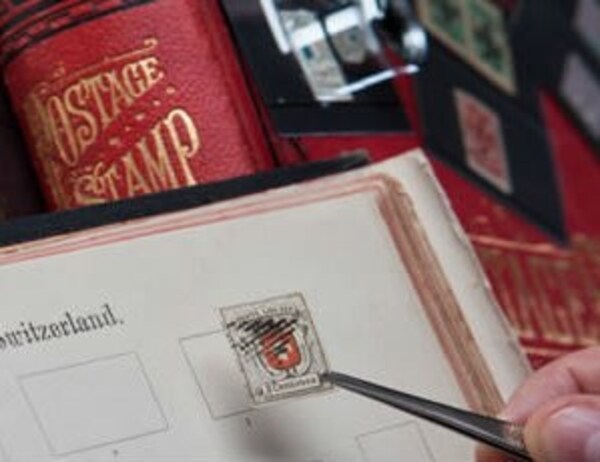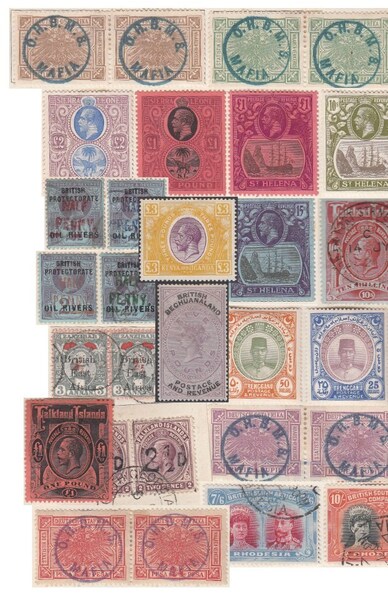A popular Italian Hero, appearing in many of the early pictorial stamps of Italy & her Colonies and San Marino. Giuseppe Garibaldi (July 4, 1807 – June 2, 1882) was an Italian patriot, who as a young man took part in a failed insurrection, and was forced to flee to South America. There he led the Italian Legion in the War of the Farrapos in Brazil and the Uruguayan Civil War, adopting his trademark clothing, which consisted of the red shirt and poncho, commonly worn by the gauchos. Returning to Italy as a commander in the conflicts of the Risorgimento, he is described by the historian AJP Taylor as 'the only real hero of the 19th Century.'
Between 1848 and 1850, Garibaldi fought in a succession of battles to liberate the various Italian States from either the tyranny of foreign occupation or the tyranny of the Church. Though relatively successful in several individual battles, there was never sufficient momentum in the cause to sweep the 'liberators' to power. After a desperate defeat by the French army, in its defence of Rome, Garibaldi travelled north to help the Venetians in their defence against the Austrians. However, such was the poor state of his volounteer army that he arrived in San Marino with only 250 men, and his wife died soon after in childbirth, during the retreat.
Garibaldi was then exiled to Tangier, where the purchase of a merchant ship was financed, in order to enable Garibaldi to earn a living. The ship was purchased in the United States, and Garibaldi arrived in New York on 30 July 1850. There he stayed with various Italian friends; however, funds for the purchase of a ship never transpired, and Garibaldi was consequently employed in the candle factory on Staten Island.
In April 1851, he left New York with his friend Carpanetto for Central America; where in Lima, a local Italian merchant, Pietro Denegri, gave him command of his ship, Carmen, for a trading voyage across the Pacific. On 10 January 1852, he sailed from Peru for Canton, China, arriving in April. After side trips to Amoy and Manila, Garibaldi brought the Carmen back to Peru, via the Indian Ocean and the South Pacific, passing clear around the south coast of Australia. Garibaldi left New York for the last time in November 1853. He sailed the Commonwealth to London and then to Newcastle Upon Tyne for coal.
Commonwealth arrived on March 21, 1854. Garibaldi, already a popular figure in England, was welcomed enthusiastically by the local working men of Tyneside. He stayed for over a month, departing at the end of April 1854. During his stay, he was presented with an inscribed sword, which his grandson later carried as a volunteer in British service in the Boer War. He then sailed to Genoa, where his five years of exile ended on 10 May 1854. In 1859, the Second Italian War of Independence broke out, and Garibaldi was appointed major general, forming a volunteer unit named the Hunters' of the Alps (Cacciatori dell Alpi). With his volunteers, he won victories over the Austrians at Varese and Como, but was forever incensed by the ceding of the province of Savoy and his home town of Nice to the French, in return for their military help against the Austrians.
At the beginning of April 1860, uprisings in Messina and Palermo, in the independent Kingdom of the Two Sicilies, provided Garibaldi with an opportunity for further expeditions of liberation. He gathered about a thousand volunteers called i Mille (the Thousand), popularly known as 'The Redshirts' and landed in Sicily, on May 11. The campaign proved effective but not conclusive, mainly because of Garibaldi's lack of political status and his great desire to see Italy unified, under the Piedmontese crown of Victor Emmanuel II. Garibaldi spent most of the 1860s in campaigns against the Papal States, mostly unsuccessful because of French patronage and lack of will among the Italian nobility to attack the Holy See. In 1861 he was almost involved in the American Civil war, but declined to serve with the North, as Lincoln refused to fight the war in the cause of the abolition of slavery. Subsequently in 1866, he fought the Austrians in the Austro Prussian War in an attempt to liberate Venetia, and also fought with the French in the Franco Prussian War in 1870.
In 1879 he founded the 'League of Democracy', which advocated universal suffrage, abolition of ecclesiastical property and the emancipation of women. He was elected to the Italian parliament but spent most of his retirement on his estate on the island of Carprera. He died on June 2, 1882, at the age of almost 75.
On a more amusing note, the Garibaldi biscuit was named him. During the wars of The Risorgimento, there were limited rations and food preparation facilities; one of the results being a simple, but wholesome biscuit. Garibaldi made a popular visit to England in 1854, making a huge impression on the populace at large. Meeting with Queen Victoria and other notables, a popular biscuit bearing his name was later manufactured by Peek Freans of London in 1861.


 General
General
 General
General
 General
General